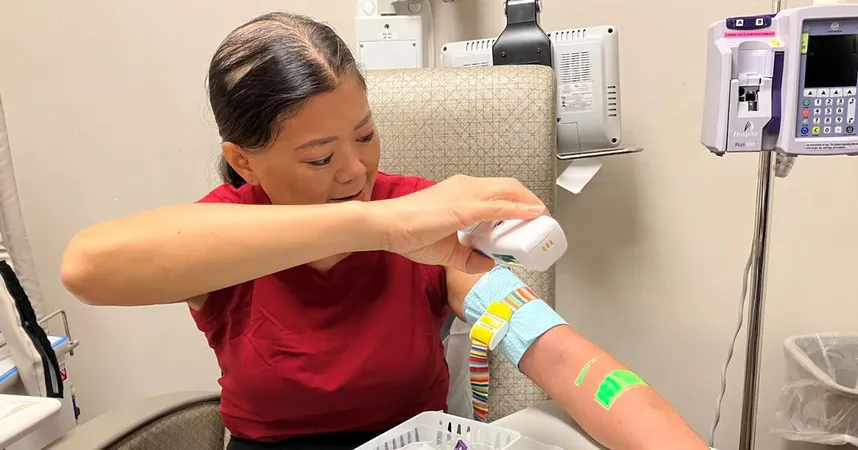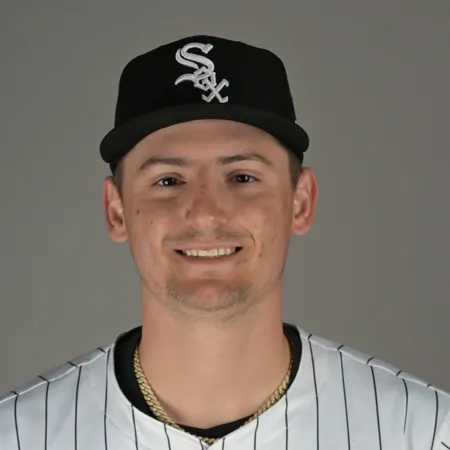
A Breast Cancer Doctor's Unexpected Journey: Insights from the Other Side of the Exam Room
2025-01-11
Author: Ling
When I walked into the hospital for my annual mammogram last year, I was merely thinking of my packed schedule ahead. As a healthy woman in my mid-40s and a breast radiation oncologist, I thought I knew the ropes of the mammogram process. With no symptoms to report and nothing alarming in my family history, I expected a quick appointment: in and out in less than an hour. Little did I know that my life was about to take a dramatic turn.
Despite my busy day as a single mother of three boys, the radiologist's recommendation for an ultrasound didn't raise too many alarm bells; I just wanted to get back to work. But when he returned with the results, the color drained from my face. “You have at least five suspicious masses in your right breast, along with an abnormal lymph node,” he said, and I felt the weight of those words crush my hopes.
As someone who's guided countless patients through situations just like this, I was keenly aware of how breast cancer could strike unexpectedly. Yet, I assumed that my regular check-ups would keep any serious issues at bay. The biopsy confirmed my worst fears: I had breast cancer. What followed were bilateral mastectomies and reconstruction surgery, and I instinctively chose to remove the non-affected breast as well, hoping to prevent a recurrence.
Upon waking from surgery, I naively thought the hardest part was over. Initial pathology tests suggested I wouldn’t need chemo or radiation, just daily endocrine therapy. However, reality hit again when further analysis revealed more extensive disease than anticipated. My healthcare plan quickly shifted as my medical oncologist, who also happened to be a close friend, recommended adding chemotherapy and CDK 4/6 inhibitors to my treatment.
In disbelief, I sought a second opinion from the renowned Dana-Farber Cancer Institute. “Your chance of a 10-year disease-free survival is 85%,” the doctor said. My heart sank; my once carefree life had suddenly morphed into one filled with uncertainty and the fear of dying. Just a month prior, I had aspirations of being there for my children as they grew up, and now I was grappling with thoughts of a life-threatening illness.
The stark reality of my diagnosis forced me to re-evaluate my earlier comments about other patients. In the past, I often reassured those with low-risk diagnoses that they were unlikely to experience dire outcomes. Now, as I faced my own challenging situation, I finally understood their desperate desire for additional treatment, fueled by the terror of cancer's unpredictability.
Returning to work two weeks after surgery felt like a lifeline. I wanted to regain control amidst the chaos of my diagnosis while encouraging my patients to maintain their routines. However, each day became an emotional tug-of-war, balancing my profession and caring for my boys with the harsh reality of my own cancer journey.
I designed my chemotherapy regimen around my life, taking breaks after treatment cycles but diving back into work. Managing nausea and fatigue became my new normal, and slowly, I prioritized myself in ways I had never dared to before. Groceries morphed into Uber Eats orders, house chores were tossed aside, and I concentrated on simply being present for my kids.
Among my struggles, hair loss struck a particularly painful chord. Having always taken pride in my thick hair, watching it fall out was heartbreaking. I used to judge patients who turned down chemotherapy over concerns about losing their hair, seeing it as a trivial worry in the face of survival. However, when it happened to me, I recognized the deep connection between our identities and appearance.
Suddenly thrust into menopause due to chemotherapy's effects on my ovaries, I also grappled with symptoms I had previously dismissed in my patients. Sleep disturbances, mood swings, and weight gain added to the emotional turmoil of my battle. Realizing the simplistic solutions I had offered in the past were not so easy in practice deepened my empathy for those I treated.
In search of answers, I discovered that maintaining health after cancer meant adjusting my diet and lifestyle drastically. Focusing on whole foods, lean proteins, and exercise became crucial. I abandoned processed foods to gain mental clarity and physical wellness, empowering myself in this new chapter.
Four weeks after chemotherapy, I began radiation therapy, and the surreal experience of receiving treatment from my own team of medical staff struck me. The more I reciprocated their care, the more I felt a bond with my patients grow – I was no longer just their doctor; I shared their experience.
Despite a penchant for privacy, I eventually chose to share my journey publicly. As I opened up about my struggles, I discovered a deep connection with others who’d faced similar challenges, including friends and colleagues who confided in me about their own battles. This newfound vulnerability fostered a profound trust with my patients, as they recognized that I understood their fears and insecurities unlike ever before.
Through this life-altering experience, I emerged resilient. My role as a physician grew richer; I became more attuned to the human experience behind the clinical presentations. My diagnosis transformed me from a mere observer to a participant in this complex journey.
Breast cancer has taught me more than I could have ever anticipated. As I reflect on my journey, I realize that I now have a renewed purpose: to treat my patients with empathy and understanding, reminding myself that behind every medical chart lies a story of strength, vulnerability, and the fierce desire to survive.



 Brasil (PT)
Brasil (PT)
 Canada (EN)
Canada (EN)
 Chile (ES)
Chile (ES)
 Česko (CS)
Česko (CS)
 대한민국 (KO)
대한민국 (KO)
 España (ES)
España (ES)
 France (FR)
France (FR)
 Hong Kong (EN)
Hong Kong (EN)
 Italia (IT)
Italia (IT)
 日本 (JA)
日本 (JA)
 Magyarország (HU)
Magyarország (HU)
 Norge (NO)
Norge (NO)
 Polska (PL)
Polska (PL)
 Schweiz (DE)
Schweiz (DE)
 Singapore (EN)
Singapore (EN)
 Sverige (SV)
Sverige (SV)
 Suomi (FI)
Suomi (FI)
 Türkiye (TR)
Türkiye (TR)
 الإمارات العربية المتحدة (AR)
الإمارات العربية المتحدة (AR)